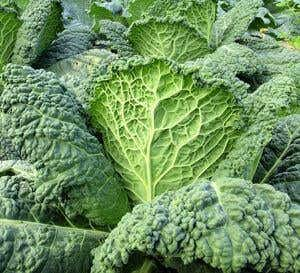
For decades, patients taking the anticoagulant warfarin, known by the brand name Coumadin, have been admonished to be very careful about consuming foods rich in vitamin K. That’s because too much vitamin K could theoretically counteract the blood thinning properties of warfarin. In practice, this meant that many patients were told that warfarin and green leafy vegetables could be dangerous and lead to blood clots. Many people avoided green leafy vegetables like kale, collards, spinach or broccoli, even though they are heart healthy.
A Change of Heart?
Now a new study from Montreal suggests warfarin and green leafy vegetables should not be considered deadly (Nutrition 2019, The Annual Meeting of the American Society for Nutrition, June 8-11, 2019). The experts who conducted this research suggest that people would do better to eat more green leafy vegetables if they keep their vitamin K intake consistent.
What They Did:
The trial involved 46 patients taking warfarin. They all had a history of difficulty maintaining consistent anticoagulant activity. For six months half of the patients were given nutrition and cooking classes with a general focus on improving nutrition. They were the controls.
The other half received nutrition and cooking classes focused on increasing the amounts of green vegetables and other vitamin-K rich foods in the diet. After six months, half of those who had increased their vitamin K intake had stable anticoagulant levels.
In contrast, only one-fifth of the control group were able to achieve stability. The conclusion:
“Increasing VK [vitamin K] intake ≥150 µd/day through diet strategies improves anticoagulation stability of W [warfarin]-treated patients with a history of anticoagulation instability.”
Making Sense Warfarin and Green Leafy Vegetables:
We’ll bet you have no idea how much vitamin K you consume daily. Your package of broccoli or kale does not list how much vitamin K is in a serving. We’ve got you covered. Our FREE Guide to Coumadin Interactions lists the vitamin K content of dozens of familiar foods.
For example:
- 3.5 ounces of raw kale has 817 mcg of vitamin K
- 0.5 cup of cooked spinach has up to 360 mcg of vitamin K
- 0.5 cup of cooked collards has 440 mcg of vitamin K
You can find out about more about vitamin K and green leafy vegetables in our free Guide to Coumadin Interactions at this link.
You will also learn about medications that can interact with warfarin.
Perhaps it is time for health professionals to counsel their patients taking warfarin to eat more green leafy vegetables rather than fewer and maintain a consistent intake of vitamin K daily. It is also important to have periodic blood tests to make sure your anticoagulation activity is in the sweet spot!
Nutrition 2019, The Annual Meeting of the American Society for Nutrition, June 8-11, 2019.

